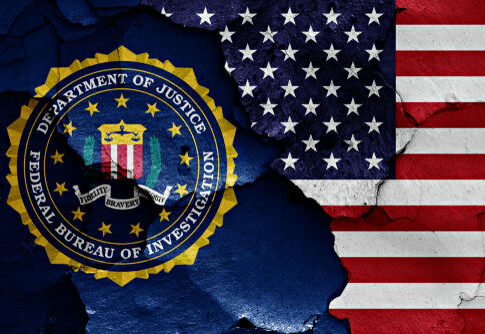Federal agents stopped a potential preschool massacre after racially charged threats surfaced online—yet the episode renews deep concerns about digital surveillance, law enforcement power, and the erosion of constitutional freedoms under the guise of public safety.
Swift Arrest Highlights Tensions Between Security and Liberty
On September 1, 2025, Carteret County Sheriff’s deputies, working in tandem with the FBI, arrested 25-year-old Zachary Charles Newell at his Newport, North Carolina home. Newell allegedly posted explicit, racially motivated threats on YouTube targeting Black preschool children, escalating from a broad threat on August 26 to a chilling, detailed promise of violence by August 27. Google’s internal protocols flagged the content, prompting a report to the FBI’s National Threat Operations Center, which swiftly traced the account and triggered an interagency response. Newell was placed into federal custody and charged with making interstate threats to kidnap or injure, headed for prosecution in the Eastern District of North Carolina.
The rapid resolution of this case reassured parents and the local community that law enforcement remains vigilant against hate-fueled threats. However, it also reignited debates over the expanding power of federal agencies and tech companies to monitor, censor, and report online speech. For many conservatives, this raises red flags about Big Tech’s growing role as an arm of government—acting as both gatekeeper and informant, sometimes at the expense of due process and First Amendment protections. While the public’s safety is paramount, the precedent set by constant digital surveillance and the ease of federal intervention warrant scrutiny from anyone concerned about limited government and personal liberty.
Big Tech, Law Enforcement, and the Cost to Due Process
Google’s involvement in this case underlines how major tech firms now play a frontline role in reporting digital content to federal authorities. Under mounting pressure from lawmakers—especially during the previous administration—platforms developed aggressive reporting protocols for what they deem “credible threats.” While these measures have undoubtedly prevented violence, the system’s opacity leaves Americans uncertain about what triggers a report, how accounts are linked to individuals, and the standards used to escalate cases to law enforcement. This dynamic risks criminalizing speech before facts are fully investigated and bypasses traditional safeguards designed to protect the innocent until proven guilty.
In recent years, conservatives have witnessed how digital monitoring can be weaponized—sometimes selectively—against those who dissent from progressive orthodoxy. The Newport incident, though heinous and clearly criminal if proven, demonstrates both the necessity and the peril of instant law enforcement action at the intersection of Big Tech and Big Government. Americans must remain vigilant that the tools used to prevent violence do not morph into instruments that chill free speech, surveil law-abiding citizens, or erode constitutional rights under the banner of “public safety.”
Community Impact and the Broader Fight for Parental Rights
For families and educators in Carteret County, the immediate priority is the safety of children. Local officials, including Sheriff Asa Buck, publicly condemned the threats as “violent, hateful and shocking to the conscience,” promising continued vigilance. Yet this incident also underscores the need for parents and communities—not distant bureaucrats or tech giants—to lead in keeping schools safe. Conservatives have long championed parental rights and local control as bulwarks against both criminal threats and government overreach. The partnership between federal agents and local deputies in this case was effective, but it must not become an excuse for further centralization or for undermining the ability of local communities to make their own decisions about security, discipline, and values.
Looking ahead, policymakers must ensure that responses to genuine threats do not justify blanket surveillance or one-size-fits-all mandates from Washington or Silicon Valley. The real solution lies in empowering families, supporting local law enforcement, and holding both government and Big Tech accountable to the Constitution—not sacrificing liberty for temporary security. Conservatives will continue to demand both justice for those who threaten our children and vigilance against any erosion of the freedoms that define America.
Broader Implications for Conservative Values and Constitutional Protections
This case, while resolved without tragedy, is a clear reminder that the fight to protect American values is ongoing. The swift, coordinated response prevented potential mass violence, but it also exposed the growing entanglement of federal power and private corporations in policing speech and behavior. As digital platforms become arbiters of what can be said and who can be reported, the Constitution’s guarantees—free expression, due process, local governance—must not become casualties of well-intentioned policy. Conservatives know that real safety comes not from government overreach, but from strong families, robust communities, and vigilance in defending individual rights. This fight is far from over, and the stakes could not be higher.
— FBI Director Kash Patel (@FBIDirectorKash) September 4, 2025
Ultimately, Americans must hold their leaders and institutions accountable—demanding that the tools meant to keep us safe do not become weapons against our freedoms. By remaining informed, engaged, and resolute, conservative patriots can ensure that justice is served without surrendering the principles that make this nation exceptional.



Thank you FBI and president Trump !